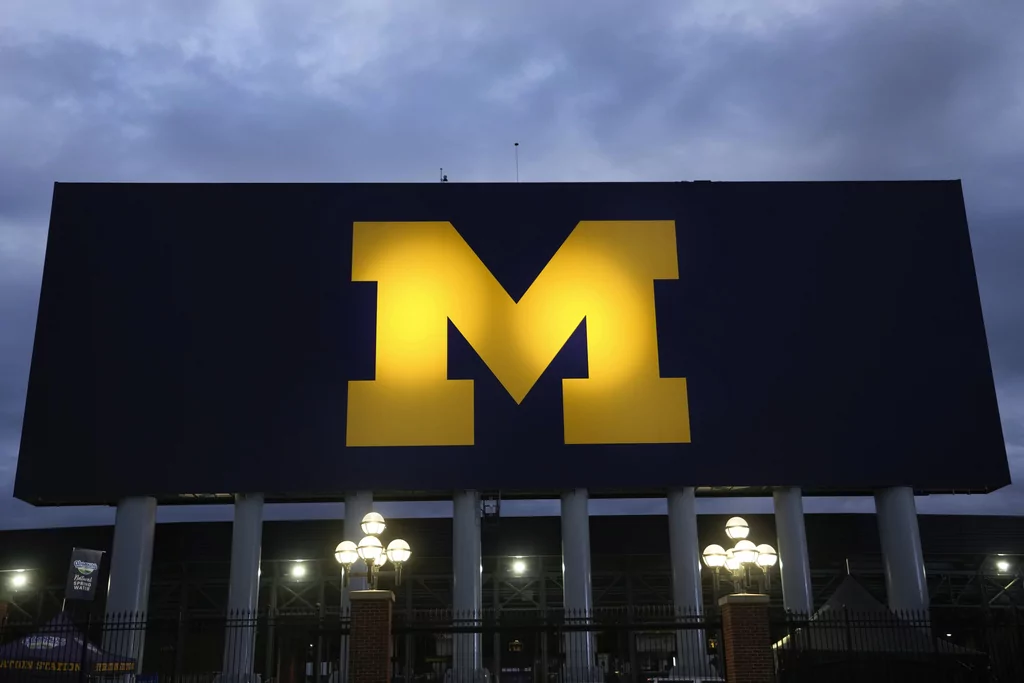Ibram X. Kendi’s Center for Antiracist Research is set to shutter at the end of June following a deluge of reporting on alleged financial mismanagement, poor leadership, and low research output. Similar academic centers hosted on college campuses across the United States share many of the same struggles that Kendi’s ill-fated venture at Boston University endured.
A Washington Examiner review of public records found that antiracism centers at five major universities received generous financial support following the 2020 racial justice movement but have little to show for it in the way of published academic papers or event programming. Even at centers where funds appear to have led to considerable research output, internal strife calls into question the validity of their work.
The George Mason University Center for Truth, Racial Healing, and Transformation
Launched in 2021, George Mason University’s Center for Truth, Racial Healing, and Transformation has little to show for its nearly five years of continued existence. The center, in fact, has a defunct website and a spokesperson for the university confirmed to the Washington Examiner that it has been shuttered.
GMU founded the center with a mandate to “aggressively confront the history of marginalization of diverse populations” and “dismantle systems based on the hierarchy of human value through narrative change, racial healing, relationship building, and community engagement.”
These lofty goals, however, led to seemingly little in the way of action.
An archived web page laying out the GMU Center for Truth, Racial Healing, and Transformation’s programming lists just two events, both held in 2021. The first was a three-day virtual symposium where topics such as “the role of black women in American democracy” and NFL racial justice protests were discussed. The second was an event dubbed “Rx Racial Healing Circles.”
A review of GMU web pages turned up no other events linked to the center.
GMU’s racial justice center didn’t come cheap. The W.K. Kellogg Foundation funds Truth, Racial Healing, and Transformation centers at universities across the nation, bankrolling 23 such establishments at the time it cut a check to GMU. While it’s unclear exactly how much the W.K. Kellogg Foundation paid GMU to start the center, tax disclosures show that the charitable organization spent roughly $6 million on the program between 2020 and 2021.
The Truth, Racial Healing, and Transformation centers also received funding from the Newman’s Own and Papa Johns foundations, though their tax forms don’t disclose how much they spent.
The Temple University Center for Anti-Racism
The Center for Anti-Racism at Temple University says it supports “the fight against racism” through advocacy, programming, and research.
“We will inform, educate and empower the public to join us in this fight,” CFAR Director Timothy Welbeck, a Temple professor teaching Africology and African American studies, vowed during the center’s grand opening in 2022. Then-Temple President Jason Wingard, also in attendance at the inauguration, said the center will be “all about supporting cutting edge scholarship” and implementing initiatives aimed at mitigating the impact of racism.
However, since its inception, the university’s anti-racist research center has hardly hosted any events or turned out any discernible academic content despite the more than $1 million poured into it.
Temple students have criticized the center’s lack of visibility on campus, its initiatives largely unknown to them.
“We have an anti-racism center?” a black student activist questioned one year after CFAR’s opening, according to the Temple News, the university’s student newspaper. A member of the Black Student Union was also surprised to hear Temple has an anti-racism center, telling the student outlet, “I didn’t know that we had one here.”
At the outset of the endeavor, Welbeck had hoped CFAR’s research-related work would be published in a number of black scholarly journals through planned partnerships. Nothing in the academic literature shows that CFAR ever produced peer-reviewed papers.
Welbeck, a hip-hop artist, has his own publications listed on his Temple biography page, but they are all old articles ranging from Huffington Post op-eds about black representation on TV to a pop culture analysis of rapper Kanye West’s mental health.
CFAR events have been few and far between over the past three years of the center’s physical establishment.
Of the handful of events CFAR has hosted, the center held a speaking event with Kendi, Juneteenth celebrations involving children’s arts and crafts in 2023 and 2024, a town hall commemorating the center’s founding, and a special discussion in honor of its two-year anniversary.
Several new programs were planned for CFAR’s third year of existence, including a diversionary program called “Pathways to Potential: A Pilot Program for Justice-Involved Youth,” but it appears that initiative has yet to come to fruition after another academic year.
University leadership said during the 2023-24 academic year that CFAR hosted four academic conferences, partnered with city agencies to evaluate “systemic racism” in city institutions, and developed strategies to mitigate its purported harm in Philadelphia, though there is little to no documentation of these undertakings.

Serving as the centerpiece of Temple’s anti-racist efforts, CFAR was conceptualized in direct response to George Floyd’s death as part of a $1 million internal investment that Temple University had committed to supporting anti-racism curriculum and programming.
Over a year after the original announcement of a new anti-racist research facility, Pennsylvania state Rep. Malcolm Kenyatta, a Democrat and Temple alumnus, secured $1.3 million in state funding for the center’s construction, although CFAR operates out of a room in Mazur Hall, a campus building already built and recently renovated at the time. The grant was awarded to “ensure that the center gets off to a strong start on the important work it will undertake,” according to Temple’s communications arm.
Molefi Kete Asante, a member of CFAR’s faculty advisory board and the visionary behind the center, said their shortcomings should not fall onto Welbeck, but rather on how Temple prioritizes funding. “I’m pretty sure that Dr. Welbeck and the Advisory Committee will have further progress next year, but it’s going to depend on the funding priorities of the university and encouraging private funders to fund activities,” Asante told the Temple News.
Welbeck has acknowledged but not answered an inquiry into whether CFAR is still in operation.
The Georgetown University Racial Justice Institute
Georgetown University’s Racial Justice Institute is an interdisciplinary research hub composed of thought leaders, scholars, and anti-racist activists working to “advance knowledge on racial justice.”
In 2017, the university put a five-year, $1.5 million grant from the Andrew W. Mellon Foundation toward the institute’s development. By 2019, a faculty committee was brainstorming ways to set up the Racial Justice Institute and spread it over the law center, medical center, and main campus. Finally, following the George Floyd protests, Georgetown launched RJI in 2021.
Since then, RJI’s research and events, though ample at first, have slowed down significantly, with nothing on the books this academic year, except for a theatrical play in March funded by a Massachusetts charity and a national opera organization.
RJI currently houses three centers tasked with forming strategies, interventions, and models for illuminating and eliminating “structural injustice” in the U.S.: the Center for Men’s Health Equity, focused on the well-being of black and Latino men; the Woodshed, a cultural arts center promoting conversations about racial justice; and the Center on Race, Law & Justice, which “re-envisions paths to justice.”
The men’s health equity center similarly has a shortage of publications, presentations, policy efforts, and press appearances this school year, all of those metrics of output last seen churning out products in 2024. The Woodshed, however, appears to have some projects and productions in the pipeline.
Meanwhile, the law center’s website, still “a work in progress,” says it is being established by RJI founding co-director Robin Lenhardt, who returned to Georgetown Law four years ago to help establish the racial justice institute. “Race audits,” which assess a city’s inclusivity, was supposed to be the law center’s signature project. The law center credits itself with one event, a 2021 webinar, which Lenhardt moderated about “The Whiteness of Wealth” for RJI’s book club, “Reading Race.” The law center’s scholarship mentions simply link to Lenhardt’s scholarly work dating back to the 2000s.
The institute itself also produces a podcast but only released two 30-minute episodes, both in 2023, about “white privilege” and “visions of justice rooted in acts of reclamation.”
RJI’s annual report web page is blank, though the institute’s leadership says they recognize the importance of keeping community members and supporters informed of their progress.
Georgetown University, RJI, and Lenhardt did not respond to requests for comment.
The University of Michigan Center for Racial Justice
The Center for Racial Justice at the University of Michigan sets out to further education, research, and policy engagement on race-related issues.
To date, the racial justice research center, launched in 2021, has only produced eight in-house research publications, dubbed policy briefs, though the institute touts a growing cohort of faculty affiliates working on anti-racist research.
When asked whether any of CRJ’s papers are peer-reviewed, a university spokeswoman said “scholars affiliated with the Center publish their peer-reviewed books and articles under their own names. Peer-reviewed academic materials are not published under CRJ authorship.”
Students and UMich staff are also offered an opportunity to write policy briefs for the research center. Those who author policy briefs can receive compensation. CRJ’s Student Initiative Fund additionally provides financial support for student-led initiatives and projects that “deepen the critical understanding of race and public policy, with a focus on antiracism and racial justice.”

In 2021, the university’s Office of the Vice President for Research created a grant program specifically for funding anti-racism research. Developed in partnership with the provost’s Anti-Racism Initiatives, the research grants are jointly administered by UMich’s Anti-Racism Collaborative. Each program cycle, funding is distributed for up to seven proposals: five up to $50,000 and two up to $100,000. During the first three funding periods of the Anti-Racism Grants program, over $1.5 million was awarded to 23 interdisciplinary teams.
“The CRJ has not received direct funding from OVPR’s Anti-Racism Grants program,” the university spokeswoman said.
Despite the spokeswoman’s claim, the Puerto Rico Public Opinion Lab, which is listed online under CRJ’s branding, did in fact receive an OVPR anti-racism research grant for fiscal 2023 to study Puerto Rican experiences and attitudes.
CRJ also has a visiting fellowship funded by the Mellon Foundation, which showcases these visiting fellows and their prior racial justice work. The Mellon Foundation gave $711,000 to the fellows program, according to 2023 tax filings.
The University of California, Irvine Truth, Racial Healing & Transformation Center
The University of California, Irvine was another institution that benefited from the flood of cash the W.K. Kellogg Foundation doled out during the 2020 racial justice movement. Like GMU, it established a Truth, Racial Healing, and Transformation center and, also in the mold of GMU, has few publicly listed events to show for it.
Just two events sponsored by the center show up in UC Irvine’s event archive: “a multi-perspective discussion about race and community healing in Orange County” and a “community circle” in June 2021 inviting people in California’s Orange County to continue the racial justice movement by finding ways to “collectively heal from intergenerational trauma and violence.”
Grant records show that UC Irvine received $20,000 from the Association of American Colleges And Universities to start the center. The university also used high-profile deaths commonly cited by left-of-center thought leaders as evidence of systemic racism, such as those of Floyd and Breonna Taylor, to implore members of the university’s community to donate to its Truth, Racial Healing & Transformation Center in June 2020 — with university leaders themselves contributing an additional $20,000.
The Biden administration gave UC Irvine’s racial justice efforts a second wind in 2023, disbursing a grant worth $684,006 to fund the university’s Center for Racial Justice, a separate entity that launched in 2022 to combat “hate and extremism.” Since then, the Center for Racial Justice has held numerous events, including a discussion of the book Racial Robots: Treatment of People of Color as Machines and the Struggle to be Human.
UC Irvine did not respond to a request for comment.
The University of Minnesota Center for Antiracism Research for Health Equity
Far from every anti-racism center established in the wake of Floyd’s death had negligible research output or held few events. The Drexel University Ubuntu Center and Rutgers University’s Institute for the Study of Global Racial Justice, for instance, both produced a plethora of race research.
Not every center with substantial research output was free from internal strife, however.
The University of Minnesota’s Center for Antiracism Research for Health Equity is one such institution, having produced 39 pieces of academic research since its inception in early 2021. The center, however, made headlines in May when the University of Minnesota announced that the center would be shuttering following allegations of plagiarism against founder and director Rachel Hardeman.
Hardeman allegedly copied a fellow academic’s dissertation verbatim, with the exception of swapping some names and places, to write a grant application to the National Institutes of Health. Her grant application was later approved for funding.
“I finally understood why I couldn’t implement the grants I was in charge of — why the methods sections didn’t make sense,” one of the center’s researchers wrote. “Each paragraph was plagiarized from a different qualitative paper using different methodologies that wouldn’t be used simultaneously, and they were combined into one section.”
Similar to Kendi’s center, Hardeman’s organization was reportedly marred by poor leadership and high employee turnover.
























